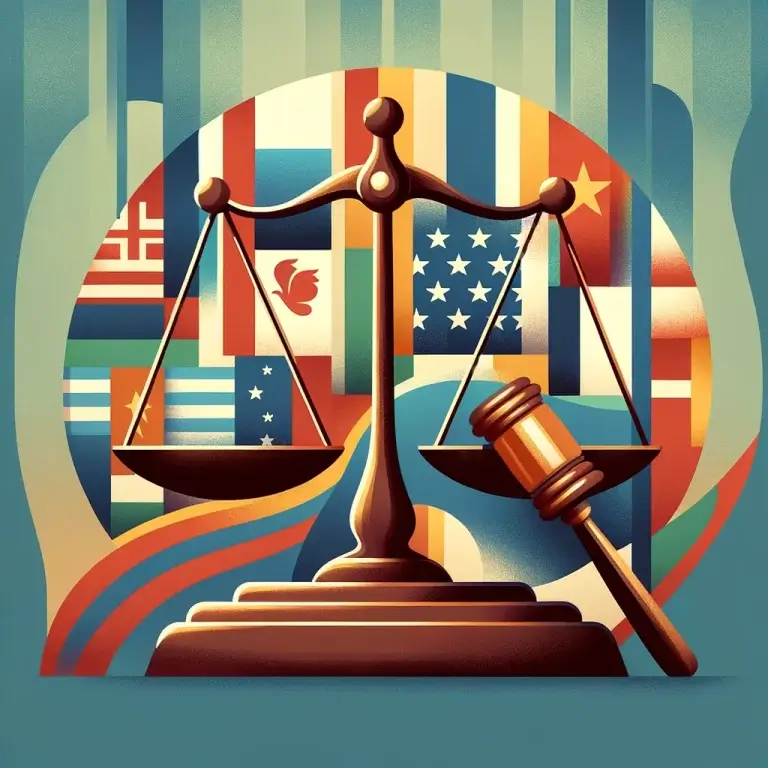Moving to the United States is a dream shared by many people around the world. Whether it is for better job opportunities, quality of life, living closer to family, or any other reason that motivates you to immigrate to the United States, having a high green card eligibility is often the key. One path that offers significant benefits for qualified individuals is the EB-2 National Interest Waiver (NIW)
In this article, we will break down the EB-2 NIW, focusing on green card eligibility and immigration sponsorship in plain, straightforward terms. Also, we will help you to understand what this waiver means, who it’s for, and, more important, how to know if your green card eligibility might be enoght to qualify.
What is the EB-2 National Interest Waiver?
The EB-2 National Interest Waiver (NIW) is a special pathway within the EB-2 (Employment-Based, Second Preference) immigrant visa category that allows certain foreign nationals to skip the traditional requirement of having a U.S. employer sponsor for increase their green card eligibility.
In simple words, the EB-2 NIW offers you a fast-track option to permanent residency if you can prove your work or contributions are in the best interest of the U.S. Without the need for an employer’s immigration sponsorship, this waiver can be a game-changer for those whose work has significant value to the U.S. economy, public health, technology, or other key areas.
Green Card Eligibility: Who Can Apply for the EB-2 NIW?
To qualify for the EB-2 NIW, you must first meet the EB-2 visa’s basic requirements, which include:
-
Advanced degree:
You must hold an advanced degree (such as a master’s or Ph.D.), or its equivalent, which is typically a bachelor’s degree plus at least five years of progressive work experience in your field.
Example: If you are an engineer with a master’s degree in civil engineering, or if you hold a bachelor’s degree and have been working as a senior engineer for at least five years, you likely meet this requirement.
-
Exceptional ability:
If you don’t have an advanced degree, you can still qualify by demonstrating “exceptional ability” in your field. Exceptional ability means that you have a degree of expertise significantly above what is normally encountered in your field of work.
Example: Let’s say you are a renowned artist or scientist with a track record of awards, publications, or public recognition of your work. If you can show that your contributions are unique and impactful, you could qualify under exceptional ability.
Now that we’ve covered the basic green card eligibility requirements, let’s dive into the National Interest Waiver part. This is where it gets interesting!
What Does the “National Interest” Part Mean?
Under normal circumstances, an EB-2 visa requires a job offer from a U.S. employer and a labor certification process (known as PERM). The employer would need to prove that no qualified U.S. worker is available to fill the position, and they have to go through a lengthy recruitment process. However, with the National Interest Waiver, these requirements can be “waived” if you can show that granting you a green card would benefit the U.S. as a whole.
To put it simply, you’re asking the U.S. government to waive the need for a job offer and immigration sponsorship because your work is of such importance that it’s in the country’s interest to have you here permanently.
How Do You Prove Your Case for the National Interest Waiver?
To secure a National Interest Waiver, you will need to meet a three-part test established in the 2016 court decision known as Matter of Dhanasar. This decision clarified the criteria for EB-2 NIW applicants and made the process more predictable.
Here are the three key criteria:
1.Your work has substantial merit and national importance: You must show that your work is in a field that matters to the U.S., such as science, healthcare, education, entrepreneurship or technology. Additionally, your work should have a broad impact, meaning it benefits more than just a single company or project.Example: A physician conducting research on life-saving treatments for diseases would meet this criterion because their work impacts public health on a national scale. Similarly, an entrepreneur whose innovative technology improves energy efficiency across the country could qualify.
2. You are well-positioned to advance your work: You need to demonstrate that you have the expertise, qualifications and track record to continue making valuable contributions to your field. This could involve showing past accomplishments, awards, publications or leadership positions you’ve held, to increase your green card eligibility.Example: If you’re a data scientist who has been published in major journals and given talks at important industry conferences, these achievements could demonstrate that you’re positioned to further your work in the U.S.
3. Waiving the job offer and labor certification requirements would benefit the U.S.: This is where you explain why it would be better for the U.S. to allow you to work independently, rather than tying you to a specific employer. You’ll need to argue that the benefits of your work outweigh the need for the labor certification process.Example: If you are a scientist developing cutting-edge renewable energy solutions, you could argue that being tied to one employer would limit your ability to collaborate widely and make the best use of your skills, which would slow down important progress in combating climate change. This will be a huge impact on your green card eligibility.
By meeting all three of these criteria, you demonstrate that your contributions are so significant that it’s in the U.S.’s best interest to allow you to bypass the traditional green card eligibility process.

The Benefits of the EB-2 National Interest Waiver
One of the greatest benefits of the EB-2 NIW is the flexibility it offers. Without the requirement for an employer immigration sponsorship, you are free to work in any role or industry that advances your field. This makes it an excellent option for researchers, entrepreneurs, and professionals in rapidly evolving industries.
Some key benefits include:
- No job offer required: You don’t need to be tied to a single employer or have a specific job offer in the U.S.
- Skip labor certification (PERM): The labor certification process can be time-consuming and complex, but the NIW allows you to bypass it entirely.
- Self-petition: You can file your own petition for a green card without relying on a U.S. employer, giving you more control over your immigration journey.
For immigrants who have an advanced degree or exceptional ability and can demonstrate their value to the U.S., this is one of the fastest and most straightforward ways to gain permanent residency.
How Long Does the EB-2 NIW Green Card Eligibility Process Take?
Like all immigration processes, the timeline for the EB-2 NIW can vary depending on various factors, including where you are applying from and how complex your case is.
Here’s a general overview of the timeline:
- Form I-140 Petition: The first step in the process is filing Form I-140 (Immigrant Petition for Alien Workers) with the U.S. Citizenship and Immigration Services (USCIS). Processing times for this form can range from 6 to 12 months, depending on current USCIS workloads.
- Green Card Application (Form I-485): If you are already in the U.S., once your I-140 is approved (or filed concurrently), you can apply for your green card eligibility by submitting Form I-485 (Application to Register Permanent Residence or Adjust Status). This typically takes another 8 to 14 months to process.
- Consular Processing: If you are applying from outside the U.S., you will need to go through consular processing after your I-140 is approved. This involves submitting documentation to the U.S. embassy or consulate in your home country, which can take several additional months depending on consulate wait times.
Altogether, you can expect the entire process to take anywhere from 12 to 24 months, depending on how smoothly your case progresses. Remember that premium processing is not available for NIW cases, which can sometimes make the process longer than other employment-based visas.
Common Challenges When Demonstrating a High Green Card Eligibility and How to Overcome Them
While the EB-2 NIW offers an attractive option for qualified individuals, it’s not without its challenges. Here are a few common issues that applicants may face, and some advice on how to address them:
- Proving national importance: It can be difficult to demonstrate that your work has a broad, national impact. To strengthen your case, gather letters of recommendation from experts in your field, and provide evidence of your work’s impact, such as publications, awards, or press coverage to show a higher green card eligibility.
- Demonstrating exceptional ability: If you don’t have an advanced degree, proving exceptional ability can be tricky. Focus on concrete achievements that set you apart from others in your field, and provide documentation of any recognition you’ve received.
- Making a convincing case for the waiver: The final part of the test can be the hardest — convincing USCIS that waiving the job offer requirement is in the best interest of the U.S. Be sure to make a clear argument that shows how your independence will lead to greater benefits for the country than if you were tied to a single employer.
The Real Question: Is the EB-2 NIW Green Card Eligibility Right for You?
Deciding whether to pursue an EB-2 NIW depends on several factors, including your professional background, your field of work, and how well you can meet the green card eligibility criteria. If you’re a professional with an advanced degree or exceptional ability, and you believe your work has significant national importance, this pathway could be a great fit for you.
If you’re unsure, it’s always a good idea to consult with an immigration attorney or an immigration advisor who can evaluate your specific situation and help you determine the best path forward. They can guide you through the application process, ensuring that your case for green card eligibility is presented as strongly as possible.
Who Can Help You?
The U.S. immigration system can be a complex and an overwhelming structure, but you don’t have to do it alone. Whether you’re applying for the EB-2 National Interest Waiver Green Card Eligibility or exploring other immigration sponsorship options, we can help you find the best attorney to support you in every step of the way. With its expertise the right attorney will help you build a compelling case that highlights your achievements and contributions to U.S. society.
These are the stages where you will need to be assisted:
- Evaluating your eligibility: Whether the EB-2 NIW or another visa category your attorney must assess you in finding the best fit for your unique background and goals.
- Preparing your petition: From gathering the necessary documentation to drafting a persuasive argument, your attorney will have to ensure that your petition is thorough and well-organized.
- Overcoming the process: Immigration law can be full of unexpected twists and turns. Your attorney will have to keep you informed and on track, helping you avoid common pitfalls and delays.

Final Thoughts: A Gateway to Your American Dream
The EB-2 National Interest Waiver Green Card Eligibility is an incredible opportunity for individuals with advanced degrees or exceptional abilities who want to contribute to the U.S. in meaningful ways. By providing a path to a green card eligibility without the need for traditional immigration sponsorship, the NIW allows talented professionals to work freely and continue making an impact.
If you believe that your work could benefit the U.S., whether through scientific research, technological innovation, or public health initiatives, the EB-2 NIW Green Card Eligibility might be the key to unlocking your American dream. The process can be challenging, but with the right support and guidance, from immigration law attorneys, it’s entirely achievable.
At the end of the day, the U.S. values individuals who can make a difference, and the EB-2 National Interest Waiver Green Card Eligibility is designed to attract those individuals. If you think you qualify, now is the time to take action.
Reach out to us if you need more information. Remember, while the journey to obtaining a U.S. green card may seem daunting, you’re not alone, because your success is in the nation’s best interest, and your future in the U.S. starts with the right plan.


